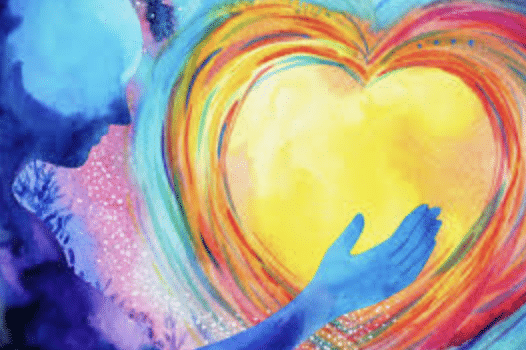THE JOY IN MOURNING: CELEBRATING LIFE AT A JEWISH FUNERAL
Each day begins with a quiet moment of gratitude, as we thank G-d for the gift of life. Yet, like the repetitive cycles of Groundhog Day, we find ourselves navigating the emotional highs and lows of existence. One moment we’re joyfully celebrating with bride and groom, the next we’re grieving the ongoing plight of hostages still not freed. One moment we cheer on our grandchildren at their basketball games, while simultaneously feeling the weight of the dire situation of the California wildfires. We can live fully in these moments and experience more than just one emotion.
We are deeply moved by the passing of beloved elders, each leaving behind a legacy of stories, wisdom, and generations to carry their memory forward. Jewish funerals, rich in solemn tradition, transform into heartfelt tributes to lives well-lived. Funerals remind us that while death is inevitable, it’s also an integral part of life’s endless cycle. The loved ones we say goodbye to live on in the stories we tell, the laughter that echoes their unique personalities, and the lasting imprint they leave in our hearts.
In Judaism, honoring the deceased—kvod hamet is a sacred duty. The rituals, from the tahara (ritual washing) to the burial, focus on respect for the person who has passed. It’s during the eulogies at funerals and the moments shared among family and friends at the houses of shiva that the true essence of their lives becomes clearer to those of us who remain.
There’s a bittersweet joy in attending a funeral where the departed have been granted the blessing of longevity. It’s a joy rooted not in their absence, but in their presence and the indelible mark they’ve left on their families and friends, their communities, and the world. In these moments, grief and gratitude coexist, each amplifying the other.
Jewish tradition places great importance on storytelling. Who doesn’t love learning more about our friends’ spouses, parents or grandparents and the way they lived and how they made a difference? It’s at their funerals, when grief and gratitude stand side by side, amplifying one another in a way that feels almost sacred…. and we feel closest to those who mourn identifying their losses with our own.
At a house of shiva, the custom is to sit with the mourners and share wonderful memories of the deceased. These stories not only comfort the bereaved but also ensure that the person’s life continues to resonate. At one shiva I attended, the daughter shared that her talented mother taught her to knead mandelbread dough “with love and just a little extra sugar,” a metaphor for her approach to life. (Phyllis, I miss you.)
And if you’re like me, you know that humor is an essential part of coping with the difficulties of life. Jewish culture has a long history of finding levity even in the darkest times. It’s not about making light of the loss but rather about celebrating the fullness of life and the memories of those who passed. When we gather to say goodbye to someone who has lived a meaningful life, we’re not just mourning their death; we’re celebrating their story. We’re marveling at the generations they’ve nurtured, the traditions they’ve upheld, and the love they’ve given. In this way, their memory becomes a blessing, one that we can all carry forward.
In the end, funerals, with their mingling of grief and joy, remind us of the importance of connection, of the value of every shared moment, and of the bittersweet joy that arises when we celebrate a life. It’s a reminder to cherish the time we have, to nurture those around us, and to leave a legacy that will be carried forward in the hearts and stories of those who knew us best.
The pain of missing our loved ones and friends assaults us deeply, yet eventually, time turns our sadness into poignant memories we can draw upon. We can take our pain and use it to make our lives better by doing something for others in honor and in memory of our departed. We can pay it forward. We can understand that every day is a new day to make a difference in the world.
MAY THEIR MEMORIES BE A BLESSING.
Shabbat Shalom.






Beautiful, Jo🩷
Jo, your weekly Shabbos articles are beautifully written, so touching. Keep them coming.